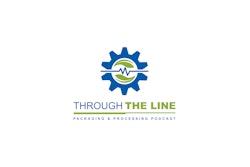E-commerce, market urbanization, big data analytics and digitalization continue to drive change throughout multiple industries.
Logistics giant DHL in October released its latest research report on ground transportation logistics. The report reveals that the fast-paced evolution underway in the sector is changing the way shipping firms think when purchasing a transportation solution.
The global survey of transport buyers and operations professionals found that 83% of businesses are willing to pay more for better and value-added services as long as they provide a measurable return on their investment.
“The logistics transport evolution: the road ahead” report by DHL Supply Chain, using data from research by Lieberman Research Worldwide, LLC (LRW), was commissioned by DHL to identify the factors impacting ground transportation logistics and how industry is adapting.
The report found that across sectors and regions, companies are increasingly viewing ground transportation as being more than a tactical commodity, with 71% now considering it to be a strategic component of their businesses. Companies agree there is a direct correlation between ground transportation and business performance, with three quarters (75%) believing investing time and resources in ground transportation will directly help their company sales.
Jim Monkmeyer, President of Transportation, DHL Supply Chain, says, “Customer expectations for almost instantaneous delivery born of e-commerce are helping to position ground transportation as an important service differentiator. This is compounded by the increase in urbanization, or major population influxes to urban areas as we’re seeing here in North America, congesting traditional transportation models and causing executives to rethink their approach to distribution in this modern era. For all these reasons, transportation conversations are happening now at the C-suite table.”
According to the report, the exponential growth of e-commerce and its implications on service was identified by 65% of companies as having a significant impact on their supply chain in the next one to two years. To manage this evolution, executives are turning to technology to empower their strategic decision-making.
Monkmeyer adds, “As we learned in our digitalization research earlier this year, these studies emphasize the need for visibility tools and technology to not only manage goods, but also ensure a positive experience for the end-customer.”
Although these changing dynamics are being witnessed across regions, variations can also be identified depending on the maturity of the market and the demands placed on shippers from their consumer base.
In Latin America, for example, the priority consideration in selecting a ground transportation provider is on-time delivery. In Europe, where the market is more mature, optimization of networks is the key focus for shippers.
The survey also pointed to broader societal factors as presenting associated challenges, with 61% of companies referencing the increase in urbanization as a factor that will significantly impact their future business. Technology and its ability to help manage this complex environment is increasingly seen as a standard requirement of 3PLs, as 67% of companies believe that big data analytics and artificial intelligence (AI) services are essential for 3PLs to offer their customers.
Download the report here.






















